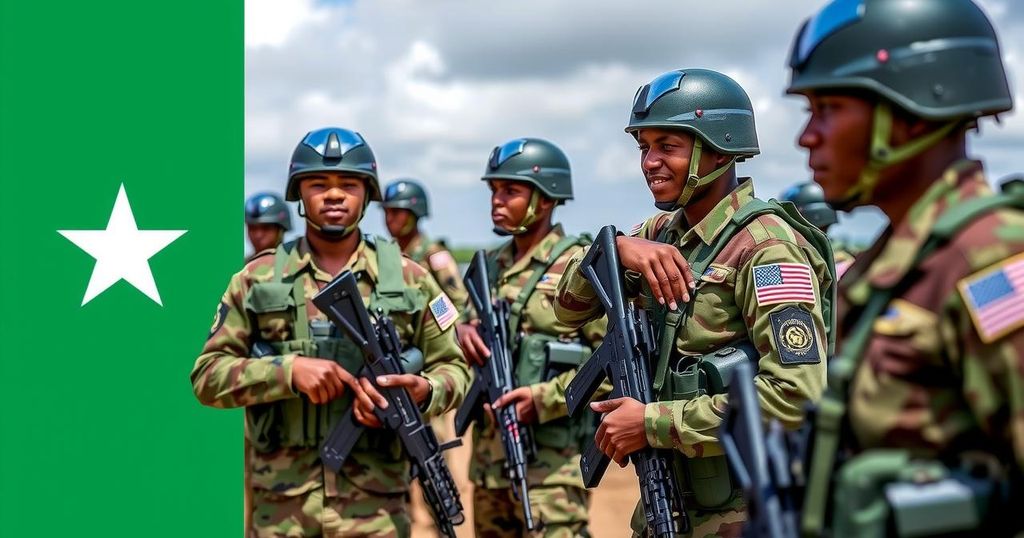The U.S. is advancing efforts to convert the Kenya-led force in Haiti into a U.N. peacekeeping mission amid surging gang violence that has disrupted Port-au-Prince’s air traffic. Despite attempts to garner full U.N. support, concerns from Russia and China present challenges. The current force’s deployment is critically underfunded, raising questions about its long-term viability.
The United States has intensified its efforts to convert the Kenya-led multinational force in Haiti into a United Nations (U.N.) peacekeeping contingent, responding to escalating gang violence that has disrupted air traffic to Port-au-Prince. Following a proposal for a U.N. mission in September, the gangs have amplified their attacks, resulting in significant unrest, particularly after political turmoil within Haiti’s transitional council. The gangs now reportedly control approximately 85% of the capital, leading to the closure of the main airport due to shootings targeting aircraft. In pursuit of this transition to a U.N. force, the United States sought approval from all 15 members of the U.N. Security Council for a draft resolution intended to initiate contingency planning for the transformation. However, both Russia and China have expressed hesitations about the shift. Specifically, Russia requires a comprehensive briefing on the current situation in Haiti before proceeding with discussions. Although the multinational force initially planned on deploying 2,500 international police, only around 430 have been sent, primarily from Kenya, with additional contributions from other nations in the region. Kenya’s President has pledged to send an additional contingent of 600 officers, aiming to stabilize the deteriorating situation. Nonetheless, the funding for this force remains inadequately low, prompting concerns that its operational capabilities may be compromised. The power of gangs in Haiti has escalated since the assassination of President Jovenel Moïse in 2021, leading to civil unrest and calls for intervention. Previous foreign military actions in Haiti, while welcomed by some, have also been met with skepticism due to past controversies, including allegations of misconduct related to U.N. peacekeepers and health crises such as the cholera outbreak linked to earlier interventions.
The situation in Haiti has deteriorated significantly due to rampant gang violence, particularly since the assassination of President Jovenel Moïse in 2021, which has weakened governmental control and led to a humanitarian crisis. Gangs now exert enormous control over key areas, prompting urgent requests from Haitian leaders for international assistance. As traditional forms of support have faltered, there is a renewed push towards establishing a more structured U.N. peacekeeping force to restore order and support national law enforcement efforts. This transition is complicated by funding challenges, geopolitical hesitancies, and historical interventions that have left mixed feelings among the Haitian populace.
In summary, the United States is advocating for the transformation of the Kenya-led force in Haiti into a U.N. peacekeeping mission amidst escalating gang violence and a dire humanitarian situation. Despite efforts to secure widespread support within the U.N. Security Council, notable objections from Russia and China complicate the initiative. The financial and operational challenges facing the multinational force underscore the urgent need for a sustainable and effective peacekeeping strategy, while historical apprehensions regarding foreign interventions persist among the Haitian people.
Original Source: www.usnews.com






